This content is associated with The Open University's Sport and Fitness courses and qualifications.
The Vitality Netball World Cup will be held in Cape Town, South Africa, from 28th July to 6th August 2023 and it will be the first time it has been held in Africa. This will be the 16th World Cup tournament, although prior to 2015 it was called the World Netball Championships. The first tournament was held in Eastbourne, England, in 1963 when Australia became champions.
For those unfamiliar with the sport of netball, it is a fast-paced invasion sport. This means aiming to get possession of the ball while attacking (invading) the defensive team's goal area. The game is played by two teams of seven players:
- Goal Shooter (GS)
- Goal Attack (GA)
- Wing Attack (WA)
- Centre (C)
- Wing Defence (WD)
- Goal Defence (GD)
- Goal Keeper (GK)
The aim is to score more goals than your opponents across a match of 60 minutes divided into four quarters of play. Players are assigned one of the positions shown above with each allocated areas of the court in which they can move. Only two players on each team are able to shoot and score a goal – the Goal Attack (GA) or Goal Shooter (GS).
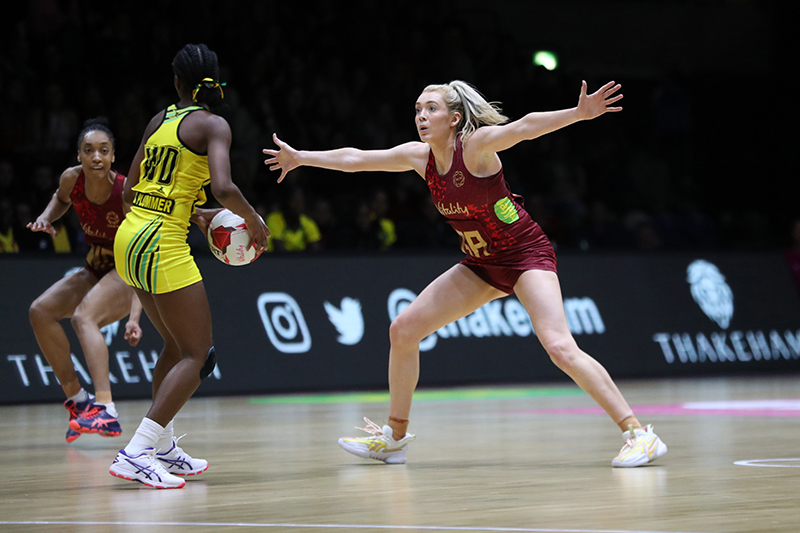 England GS Helen Housby defends the ball against Jamaican WD Crystal Plummer.
England GS Helen Housby defends the ball against Jamaican WD Crystal Plummer.
Netball is one of the most popular female sports in the world, being played by around 20 million people in over 80 countries. The rules of netball were first laid down in 1901 in England, and from England it spread across the British Empire. This is why the countries that compete for the World Cup are predominantly Commonwealth countries. And why netball is not currently played in the Olympics, although it is recognised by the International Olympic Committee. This makes the World Cup the pinnacle of the sport.
How does the tournament work?
The format is quite complex as there are two preliminary group stages where the 16 teams are divided into four groups of four. In the first preliminary stage the four teams in each group play each other to determine which group they go into for the second stage. After the second stage the team are ranked from 1 to 16 with the top four ranked teams playing in semi-finals for a final place. The other 12 teams will enter play offs for places to be ranked from 5-16.
There is British interest in this World Cup with teams representing three nations – England, Scotland, and Wales. England are in Group B with Malawi, Scotland, and Barbados, while Wales are in Group C which is a tough group with Jamaica, South Africa, and Sri Lanka.
Each team in the tournament has a nickname with England being the Roses, Scotland are the Thistles, and Wales the Feathers. The action comes thick and fast over ten days, with each team playing on nearly every day. There is not much time for rest or for reflection on performance.
Who are the contenders?
Every Netball World Cup has been won by either Australia (the Diamonds) or New Zealand (the Silver Ferns) except for the 1979 competition, when it was a three way tie between Australia, New Zealand and Trinidad and Tobago. Between the two, Australia are the more dominant, with 10 wins ahead of the 4 wins by New Zealand.
You have to go back to 1975 for the best performance by a British team when England were runners up, although they were third in 2019 and won the Commonwealth Games gold medal in 2018. At the start of this 2023 World Cup tournament, the world rankings are:
- Australia (the Diamonds)
- New Zealand (the Silver Ferns)
- England (the Roses)
- Jamaica (the Sunshine Girls)
While these four are the main contenders, no team should be ruled out. South Africa (the SPAR Proteas) who are ranked fifth, will hope to make at least the semi-finals on home soil. The Zimbabwe Captain Felistus Kwangwa is the first Zimbabwe international to play in the Vitality Netball Superleague (VNSL), she signed for Surrey Storm in 2021 so will be bringing fresh insight to her Zimbabwe team (The Gems). We also have top goal scorer and 2023 VNSL champion for Loughborough Lightning Mary Cholhok representing Uganda (She Cranes) so she will be posing a big threat in the shooting circle.
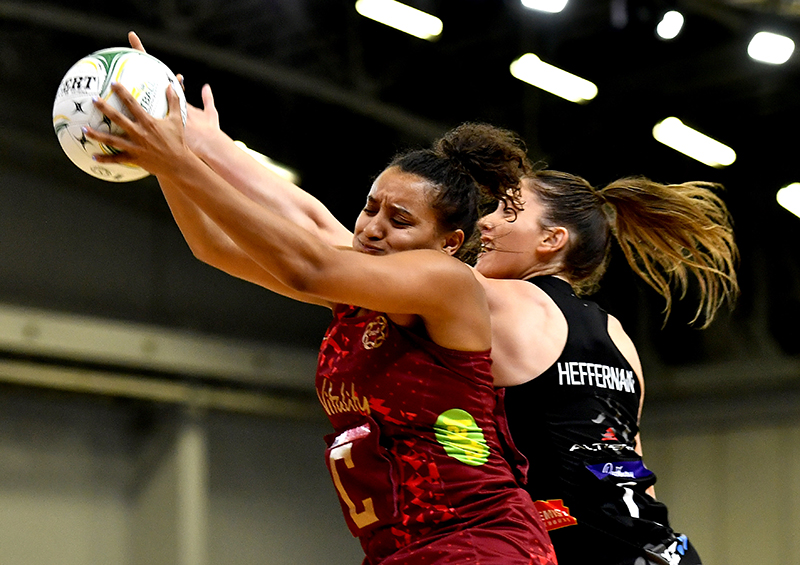 England Centre Imogen Allison will go to great lengths to receive the ball, defending her opponent, New Zealand Centre Kate Heffernan.Photograph of England netball player Imogen Allison receiving the ball in a game.
England Centre Imogen Allison will go to great lengths to receive the ball, defending her opponent, New Zealand Centre Kate Heffernan.Photograph of England netball player Imogen Allison receiving the ball in a game.
Meanwhile, the Corbin sisters; 71 caps for England and recently retired VNSL Saracens Mavericks Captain Sasha, and 72 caps for England, VNSL team Bath player Kadeen are representing Barbados (The Bajan Gems) this year, which will certainly pose challenges for their opposers. Wales (ranked 9th) and Scotland (ranked 10th) might be regarded as outsiders, but also have a lot of VNSL players in their squad, while Malawi (The Queens) and Tonga (the TALA) have good fighting chances of upsetting the big four teams. To follow the tournament, the full line up and more information can be found on the Netball World Cup website.
How good are the Roses chances?
The Roses are talking up their chances of success while appreciating it will be difficult. This will be the first World Cup for Head Coach, Jess Thirlby, and she has selected a squad with a mixture of newcomers and experience. Of the squad of 12, there are five players going into their first tournament while there are two Roses legends, Jade Clarke, and Geva Mentor, playing in their sixth World Cup. Jess Thirlby has named former England Centre player and 2018 Commonwealth winner Serena Kersten (previously Serena Guthrie) as the Leadership and Culture Coach. She has also named former England Goal Shooter and 2018 Commonwealth winner Jo Harten as the Support Coach, so she is bringing a wealth of knowledge and experience to this World Cup.
One of the key positions on a netball court is Centre, as they can move anywhere on the court, except the two shooting circles. Two of the three centres in the squad, Imogen Allison (C/WD) and Laura Malcolm (C/WA/WD), will be making tournament debuts. The third Centre in the squad, Jade Clarke has formed an excellent midcourt partnership with Australian-born player Chelsea Pitman (WA). Their understanding could be key to the Roses success. Also, New South Wales Swifts (Australian professional netball team) player Helen Housby (GA/GS), an important player for England who scored the winning goal in the 2018 Commonwealth Games success, retains her place in the squad. She is joined by Eleanor Cardwell (GS/GA) who has just won the 2023 champion title in Suncorp Super Netball (a top-level netball league in Australia) with her team the Adelaide Thunderbirds.
The Roses have the belief to succeed and a positive mindset, but finding the joy of victory in Cape Town will not be easy.
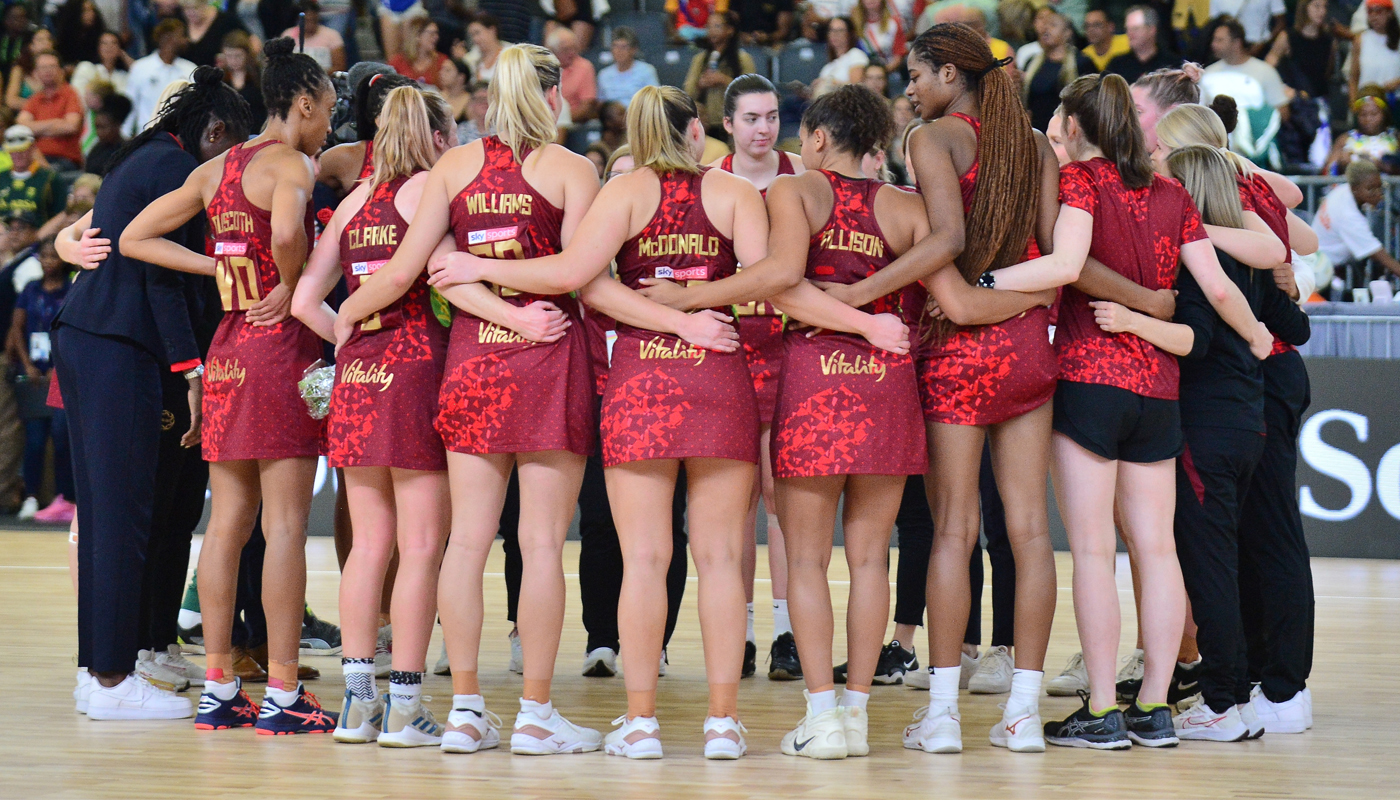




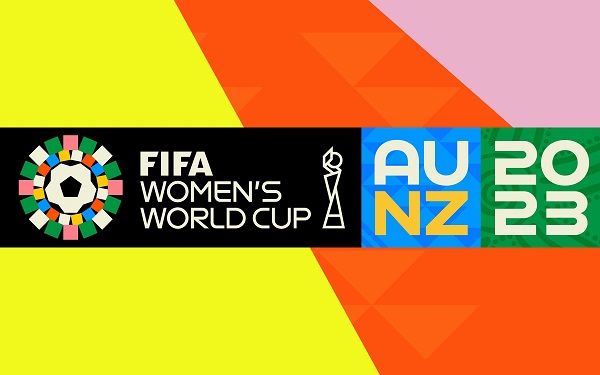




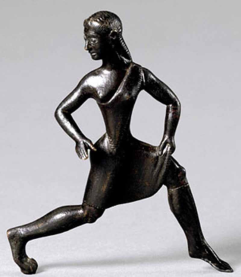














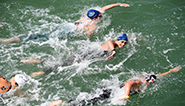
Rate and Review
Rate this article
Review this article
Log into OpenLearn to leave reviews and join in the conversation.
Article reviews